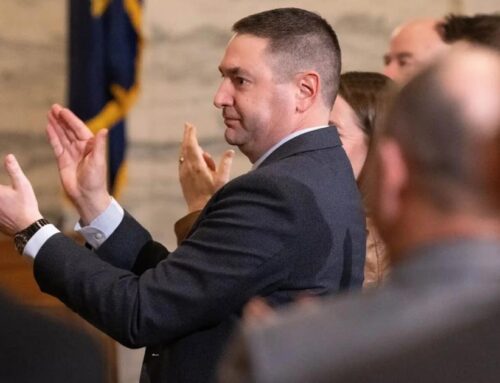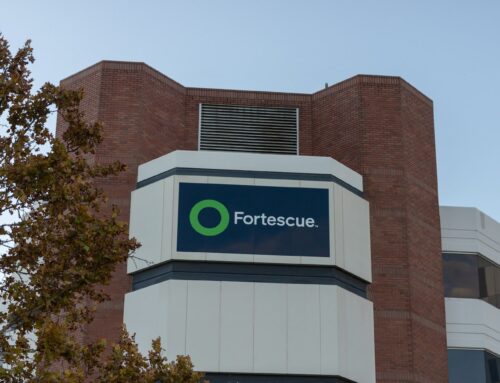Why Amazon’s $2.5 billion Prime settlement with the FTC is actually a giant win for the co
September 25, 2025
The Federal Trade Commission on Thursday announced a $2.5 billion settlement with Amazon just days into a trial over the tech giant’s alleged use of deceptive practices that the commission said for years tricked millions of consumers into signing up for a Prime membership without their knowledge, and made it unreasonably difficult for them to cancel the service.
But the most exuberant celebrations Thursday may be occurring within the executive suites at Amazon’s D.C. and Seattle headquarters.
And for good reason.
The case, first filed by the FTC in 2023 under then-chair Lina Khan, outlined a variety of ways that Amazon utilized misleading web design tactics, known as “dark patterns,” to get online shoppers to unknowingly enroll in its Prime program when making a purchase, or make it frustratingly difficult for someone to cancel a Prime membership (which cost $139 a year when the case was filed). The FTC cited a “four-page, six-click, fifteen-option cancellation process”—referred to internally by Amazon insiders as “Iliad”—that the agency said distracted or derailed customers on their way to cancel the membership.
It was a bad look for Amazon, and, given that the case was aimed directly at one of Amazon’s most important products, the stakes were high.
The outlook for Amazon appeared to brighten in January when Donald Trump was inaugurated as the 47th president and Khan was replaced as FTC chair. Whether accurate or not, the perception inside Amazon was that new FTC leadership would be much more amenable to a settlement than Khan was. (Prior to leading the FTC, Khan had made her name as critic of Amazon in law school and later helped lead the House Judiciary’s Big Tech investigation in 2019 and 2020.)
But no settlement occurred. And then things got worse for Amazon.
Last week, before the trial was set to begin, the federal judge presiding over the case gave the FTC a partial win by ruling that some of Amazon’s actions violated consumer protection law by not disclosing the terms of a Prime membership before collecting a consumer’s billing information. The judge also ruled that the executives named in the FTC suit could be personally liable if a jury ruled against Amazon.
That might have been enough to push the company to settle. But this week the trial started. At this point, if you were a betting man, you probably would not find Amazon’s odds very encouraging.
And Amazon’s decision to shell out billions to settle the case just a few days into the trial certainly seems to confirm Amazon’s weak hand.
Of course it’s easy to start with the numbers. To call $2.5 billion a slap on the wrist would be absurd. But let’s be clear:the $2.5 billion total settlement amount is equal to about 13 days of profit for Amazon based on its financial results over the last 12 months. Or, when it comes to revenue, less than two days of sales.
As is the norm for these types of settlements, Amazon also didn’t have to admit any wrongdoing, even though it altered many of the practices in question after the FTC’s investigation began. And neither did the executives overseeing Prime who were named in the case, and who could have been found personally liable if the jury had ruled for the FTC.
The company also is now able to avoid further media coverage of the case and the details of the company’s actions that had the potential to embarrass Amazon and tarnish its reputation among consumers. Instead, within a few days, the news cycle will move on, and you could imagine that the majority of consumers might never think twice about the case.
That’s why for some former FTC officials, under whom the case started, the settlement announcement was tough to swallow.
On one hand, the $1.5 billion amount that will be paid out to consumers “is not nothing” and the fact that a Trump-backed FTC chair took a Biden-era case to this point at all “is pretty striking in a good way,” one former senior FTC official told Fortune.
But the official struggled to understand the rationale for settling at this point, after the judge’s favorable rulings last week, and after the agency had already invested heavy resources in bringing the case to trial. Any agency savings from settling now, versus taking the case the full distance over the next month, would likely be comparatively small.
“Why not go through the trial at this point?” the former official asked rhetorically. “What are you saving? A few days on hotel rooms?”
Maybe, you could argue, that the allegations in the lawsuit alone punctured Amazon’s self-portrait of a company focused on “customer obsession” and might erode customer trust, as I pondered for Fortune earlier this week.
Maybe the settlement alone is enough deterrence for Amazon executives to think twice about controversial practices like those at issue in the case.
But a jury ruling of liability, and more media coverage along the way, likely would have made a bigger impact for the FTC (assuming, of course, a big FTC victory—which seemed likely but of course, couldn’t be guaranteed).
Instead, this feels kind of like a win-win.
The FTC gets to proclaim a big top-line number and victory.
“Today, the Trump-Vance FTC made history and secured a record-breaking, monumental win for the millions of Americans who are tired of deceptive subscriptions that feel impossible to cancel,” FTC Chairman Andrew N. Ferguson said in the press release.
And Amazon gets to move on rather easily too, without any admission of wrongdoing.
“Amazon and our executives have always followed the law and this settlement allows us to move forward and focus on innovating for customers,” the company said in its own statement.
Now, in regulatory circles, the spotlight moves to the FTC’s historic antitrust lawsuit against Amazon, which is supposed to go to trial in 2027.That case is even more critical for Amazon, carrying the prospect of severe remedies which could include a breakup or forced changes that disrupt Amazon’s business model.
And, after Thursday’s surprise settlement, the obvious question is: How much do the chances of another Amazon/FTC settlement now increase?
Fortune Global Forum returns Oct. 26–27, 2025 in Riyadh. CEOs and global leaders will gather for a dynamic, invitation-only event shaping the future of business. Apply for an invitation.
Search
RECENT PRESS RELEASES
Related Post




